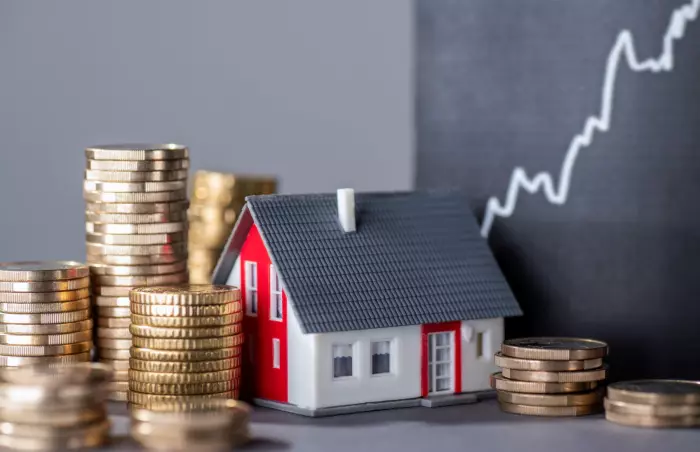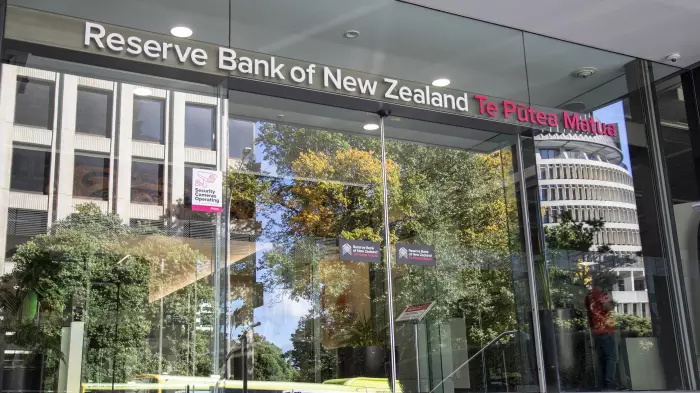BusinessDesk investments editor Frances Cook responds to emails from readers each week to answer questions about money. Below, you will find her expert advice. Send your own questions to [email protected].
Kia ora, Frances!
Hope you're doing well.
I live in Auckland, and within the next three years I will have saved up enough to afford a deposit on a small apartment in the city.
However, due to the nature of my work, it is likely that I will leave New Zealand within the next decade. For moral and personal reasons, being a landlord is not an option for me, especially if it involves leaving the responsibility to a property manager.
So, what would you suggest? Should I put my money elsewhere?
Ngā mihi nui,
R
Hi R
Yes, there are plenty of other options, and top of mind for your situation would be shares.
In fact, shares have grown in value at a faster rate than property, even here in housing-obsessed New Zealand.
Since 1981, the NZ property market has increased in value by 7.8% per year. Meanwhile, the NZ share market has gone up 10.5% per year.
Many investors also like to invest in US shares, where the average result over the same period is 11.9% per year.
So, you can absolutely put your dollars somewhere productive, if that’s all you're after.
However, this column doesn’t finish here. Because we also want to consider lifestyle goals, and money mindset. These things are harder to quantify, but end up having a big impact on the real numbers that you’ll be left with.
Index funds make it easy
The trick with investing your money into shares instead is that you need discipline. There’s no getting out of paying a mortgage each week. Meanwhile, nobody but you will force you to invest in index funds regularly.
So, if this is the path you choose, set up an auto payment and make sure you consider it an unbreakable commitment.
Be aware that investing in just one company is very risky. Companies can, and do, unexpectedly collapse.
When liquidators make their way down the list of people who are owed money after a collapse, shareholders are legally lower on the list of priorities for people who get paid back. It’s entirely possible for you to lose your money in such a situation.
This is why it’s recommended that you invest in many companies at once. It reduces your risk of losing money, while still keeping the rewards and profits high.
An index fund is an easy way for you to achieve this. Something like the NZX50 (top 50 companies in NZ) S&P 500 (top 500 companies in the US) or a global fund (a mix of top-performing companies spread throughout the world) makes it easy to invest and get the rewards without the sweat. They also keep fees low, which is an important consideration.
So that’s another option for you, right off the bat. Now let’s look at whether you actually want to use that other option, or whether buying an apartment could still be right for you.
Home vs investment
Buying a home is more than a financial decision. It’s also security, knowing you won’t get kicked out because the landlord is moving home, having the option to have a pet, and decorating how you choose.
It is, of course, also a financial decision. It’s a big deposit to get in the door, but you’re hoping that by eventually paying off the mortgage you save a big cost in future.
You’re likely to avoid rent rises, but you could face increased interest rates costs. Tricky to predict that one.
A rough rule of thumb is that if you buy a home, you shouldn’t sell it again within five years. That’s because, on average, in that time a house won’t go up in value enough to outweigh what you’ve paid in mortgage interest, and the costs of selling, such real estate agent fees and lawyers, costs.
That’s a pretty rough and ready rule of thumb, but it’s all we’ve got to go by in such situations.
So, if you’re thinking that it’ll take about three years to save up the deposit, and then you’re leaving NZ some time within the next 10 years, that five-year period of holding on to your apartment is looking a little close to the line.
The landlord issue
I want to circle back to your opposition to being a landlord.
I understand that a lot of people have problems with the landlord system. When I was still a renter, I experienced both ends of the spectrum – a truly fabulous landlord, who left us in peace, and kept the place warm and dry, not a single rent rise in the time we were there. And then a rather rotten one, who denied the oven was broken, refused rent relief when we were flooded out and the house needed repairs, and who was literally caught at one time peeping through our windows.
So, I do understand the anger some people feel at landlords. I do also, however, feel it’s possible to do it ethically.
You don’t go through your reasons for not wanting to do it, but I’ll just put some possibilities to you, based on conversations I’ve had with other people in a similar situation.
If you’re buying the house as a home, but you’ll need to rent it for a couple of years to pay the bills, that’s a very different mindset from how some approach investment property.
You know that the home will be warm, dry and, frankly, suitable for human habitation. You know, because you’ve happily lived there yourself.
There’s no need to charge a huge market rent, if you don’t want to. If it’s been a couple of years of paying down the mortgage, all you need to do is cover your costs, which by then may be below market rent.
This could actually be quite a favour to whoever is renting, who may not be ready to buy themselves for whatever reason.
You could consider renting to a friend, family member or someone else that you trust. This (hopefully) reduces the risk of damage.
I would still suggest a property manager to keep an eye on things while you’re overseas, in order to make sure you’re responsive to things like any necessary repairs. You don't want the tenant frantically ringing you about a burst pipe, but unable to reach you while you're somewhere fabulous.
There are property managers, and then there are property managers.
Some of the best renting experiences I’ve had were with property managers who were across their legal obligations and understood the need for privacy in a tenant's own home.
The trick is to find a good one and make it extremely clear that you expect them to be responsive on things like repairs, and that you’re not interested in annual rent hikes for the sake of it.
Have meetings with more than one and trust your gut on who gives you a good “vibe”.
Bottom line
In your shoes, that’s what I would do. I would save up, buy an apartment that I liked, and be ready to rent it out in a way that worked for me ethically.
However, if that still doesn’t work for you, that’s all good! As long as you’ve thought things through.
In that situation, check out some index funds. They should leave you in a good financial position so that when you eventually come back to NZ (please do!) and are feeling more ready to put down roots, you’ll have a good chunk of change to use as a deposit.
Send questions to [email protected] if you want to be featured in the column. Emails should be about 200 words, and we won't publish your name. Unfortunately, Frances is not able to respond to every email received, or offer individual financial advice.
Information in this column is general in nature and should not be taken as individual financial advice. Frances Cook and BusinessDesk are not responsible for any loss a reader may suffer.














